Swiatek revealed that domestic fans have repeatedly followed her from the training ground to the hotel, openly stating her need for privacy.
In the third round of the China Open women's singles, top seed Swiatek showcased her powerful performance again. After winning the first set 6-0 against Osorio, her opponent retired due to injury, enabling Swiatek to progress to the last 16, where she will meet 16th seed Navarro.
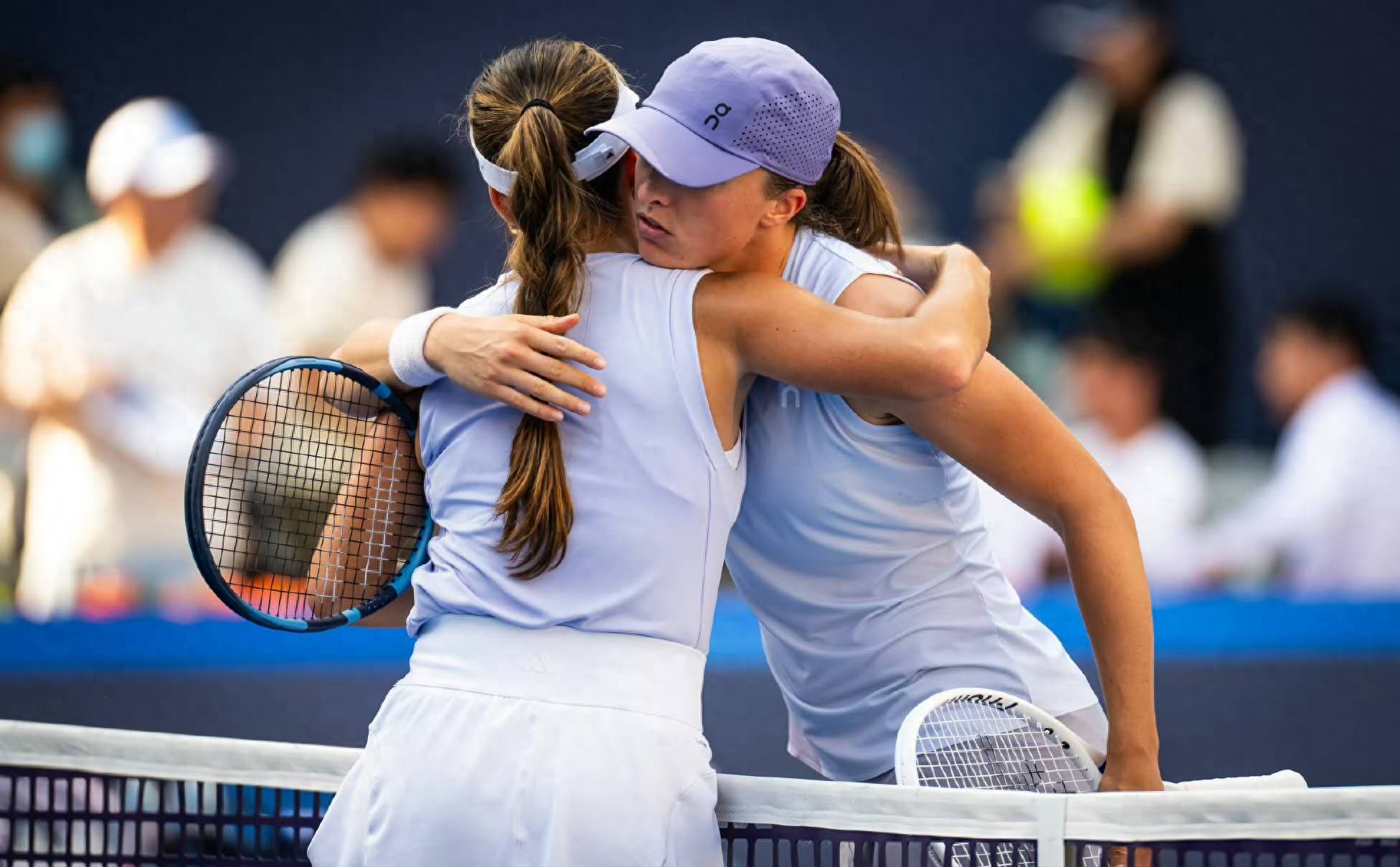
Following the match, Swiatek did not leave immediately but remained for more than ten minutes to sign autographs for the fans at the venue. According to fan counts, she signed no fewer than 100 autographs, a warm gesture that earned her rounds of applause from the crowd.
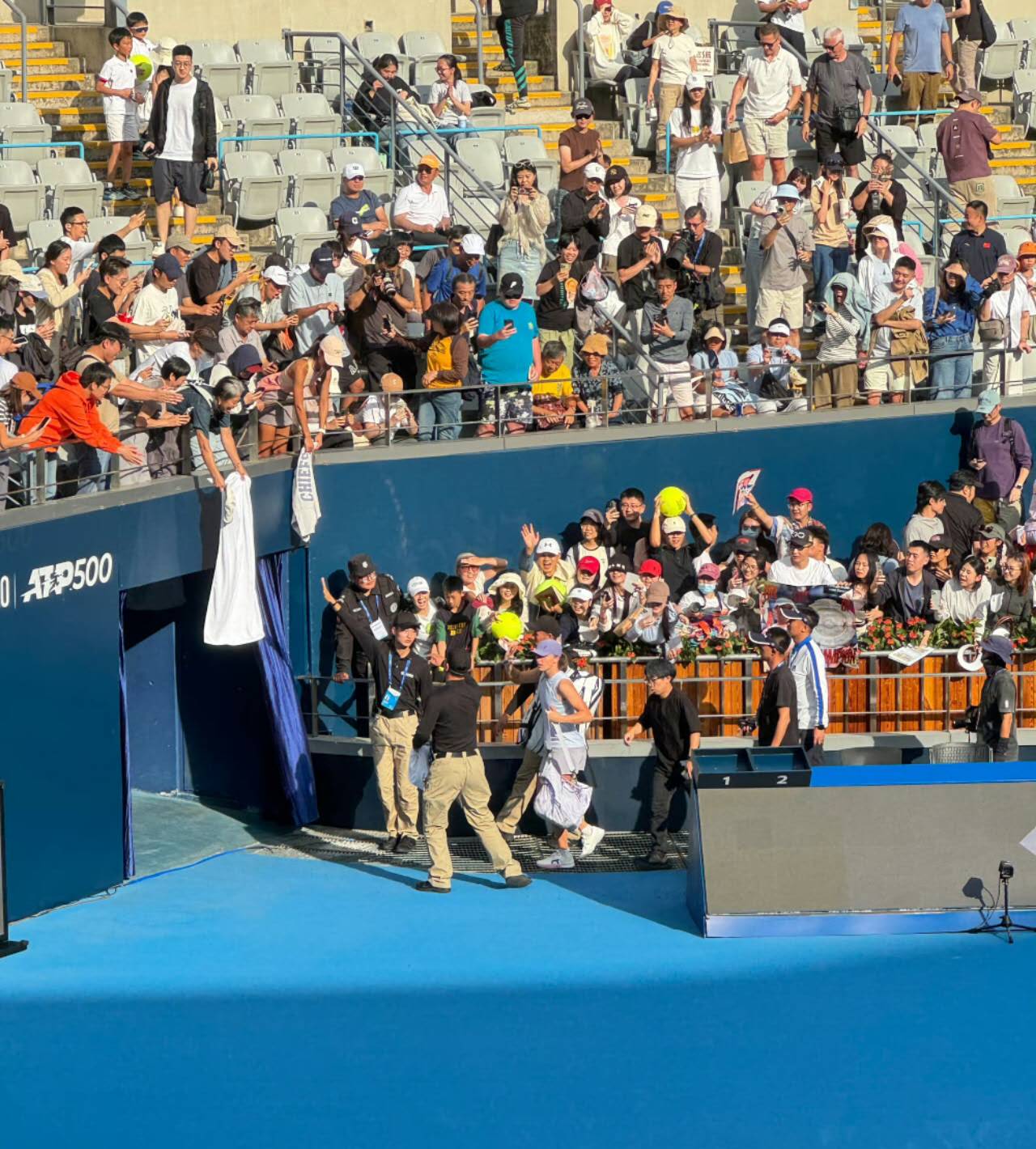
However, behind this enthusiasm, Swiatek also shared some of her personal concerns after the match. As a former world number one, she admitted that the intense passion of Chinese fans makes her happy, something she has never experienced in other regions, but sometimes their excessive following affects her private space.
Swiatek revealed that fans often follow her all the way from the training courts to her hotel, and this level of attention has clearly gone beyond what she finds comfortable.
“Sometimes at the hotel, I have to tell them that I need to leave immediately because I have to practice,” Swiatek said in an interview. “There are places where I also need more privacy.”
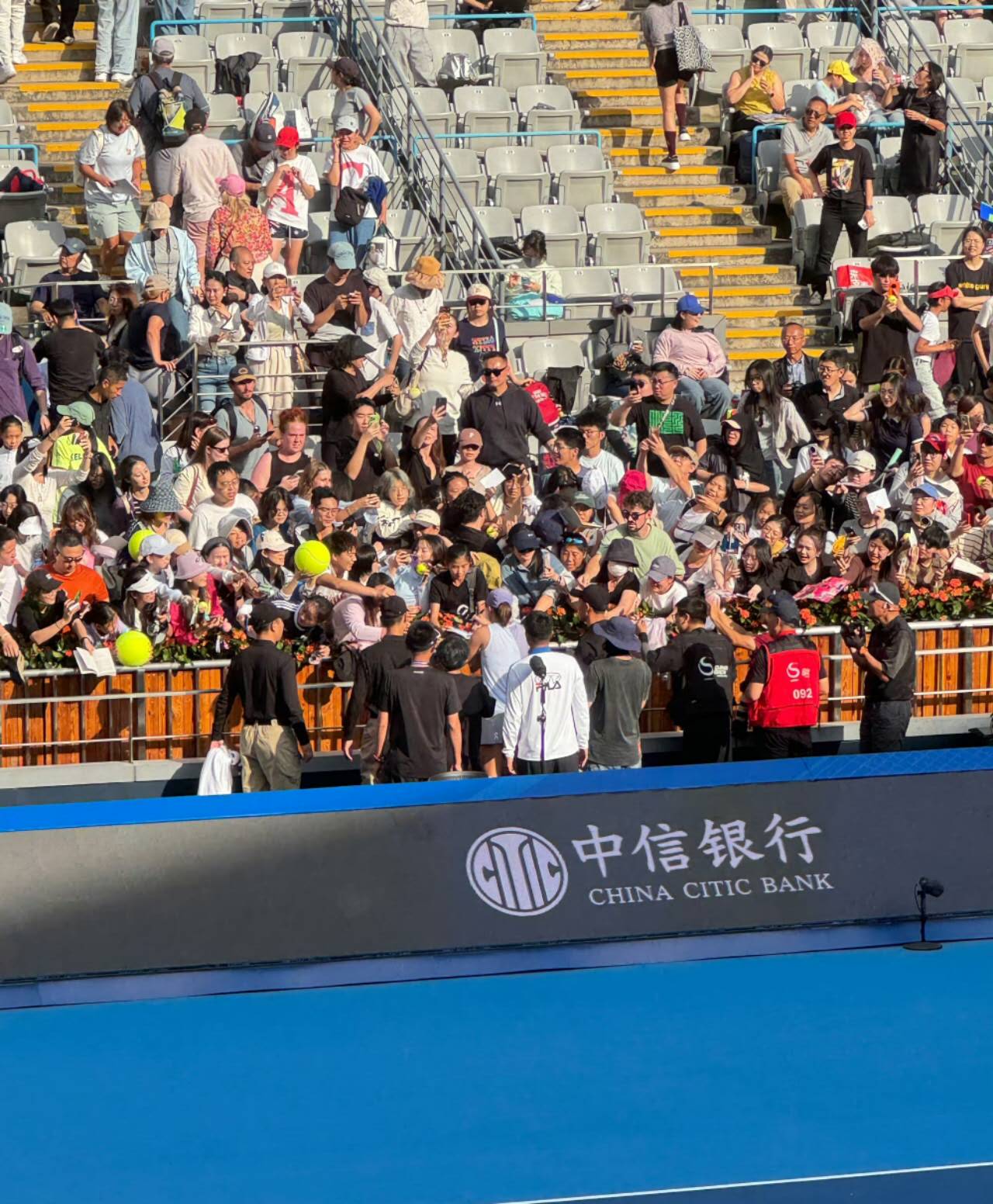
Swiatek described the frequent situation she encounters: even after clearly informing fans that she needs to leave, they still follow closely. Although this experience troubles her, her tone remains gentle when expressing it. She understands that fans’ intentions come from love and support. Her different reactions on the court and at the hotel demonstrate her understanding and tolerance toward fan behavior.
Despite these difficulties, Swiatek’s overall impression of Chinese fans remains highly positive: “I think there is a big difference; in China, people are more active and passionate, truly very enthusiastic.”

“No matter what happens, they fully support you. Even if you tell them you have to leave, they still cheer you on enthusiastically, which doesn’t happen in other countries.” She especially thanked Chinese fans for the thoughtful gifts they prepared for her, appreciating the care and effort behind them.
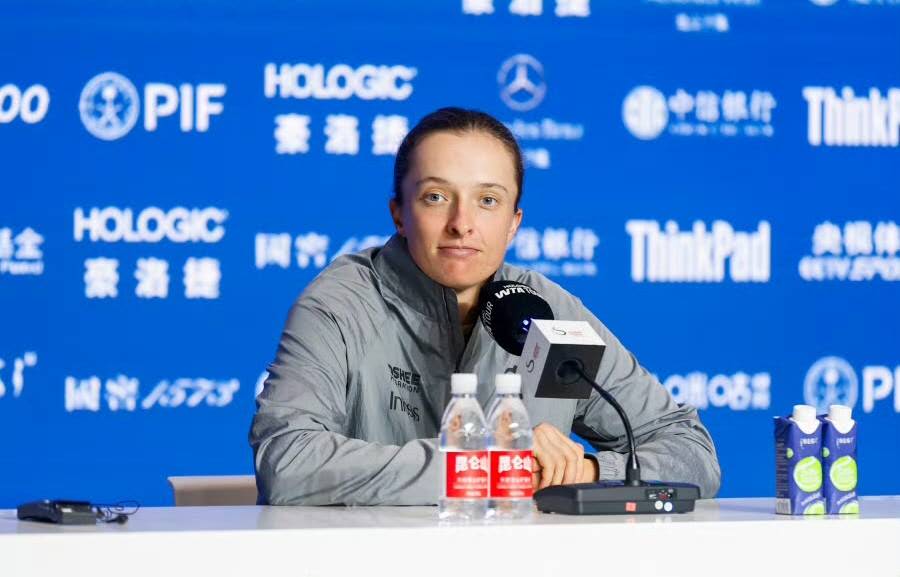
This incident sparked widespread discussion online, with netizens expressing polarized opinions.
Some netizens believe that while the enthusiasm of Chinese fans is valuable, it does lack an appropriate sense of distance. This phenomenon is closely related to the popular “fan circle culture” in recent years.
One netizen mentioned, “Last year at the China Open, there was indeed an incident where fans argued over the order of autographs, and some even cried on the spot because they didn’t get a signature. Such behavior is somewhat excessive.”
Another group of netizens holds a different view, believing that the vast majority of Chinese fans are rational, and their enthusiasm stems from a pure love of tennis and genuine appreciation for the players’ excellent performances.
A netizen commented, “Swiatek staying behind to sign over 100 autographs shows she sincerely cares about her fans, and the fans’ enthusiasm is a recognition of her hard work.”

In response, a well-known domestic sports commentator remarked on this phenomenon: “There should be a healthy relationship between athletes and fans. Fans’ support motivates athletes, but excessive intrusion into private space can negatively affect their performance.” He believes Chinese fans are gradually maturing but still need time to develop a more rational fan culture.
Tennis star Li Na has also repeatedly urged fans to respect athletes’ privacy, stating that true support should be shown on the court rather than through excessive attention to private lives.

How to maintain enthusiasm while respecting athletes’ privacy requires joint effort from both fans and players.
For fans, it is important to find a balance between passionate support during matches and respecting privacy off the court. They should cheer loudly for their idols during competitions, seek orderly interaction near training courts, and keep an appropriate distance in private spaces like hotels.
For athletes, establishing more regulated interaction channels through their teams, such as regular fan meetings, can meet fans’ needs while protecting their private space.
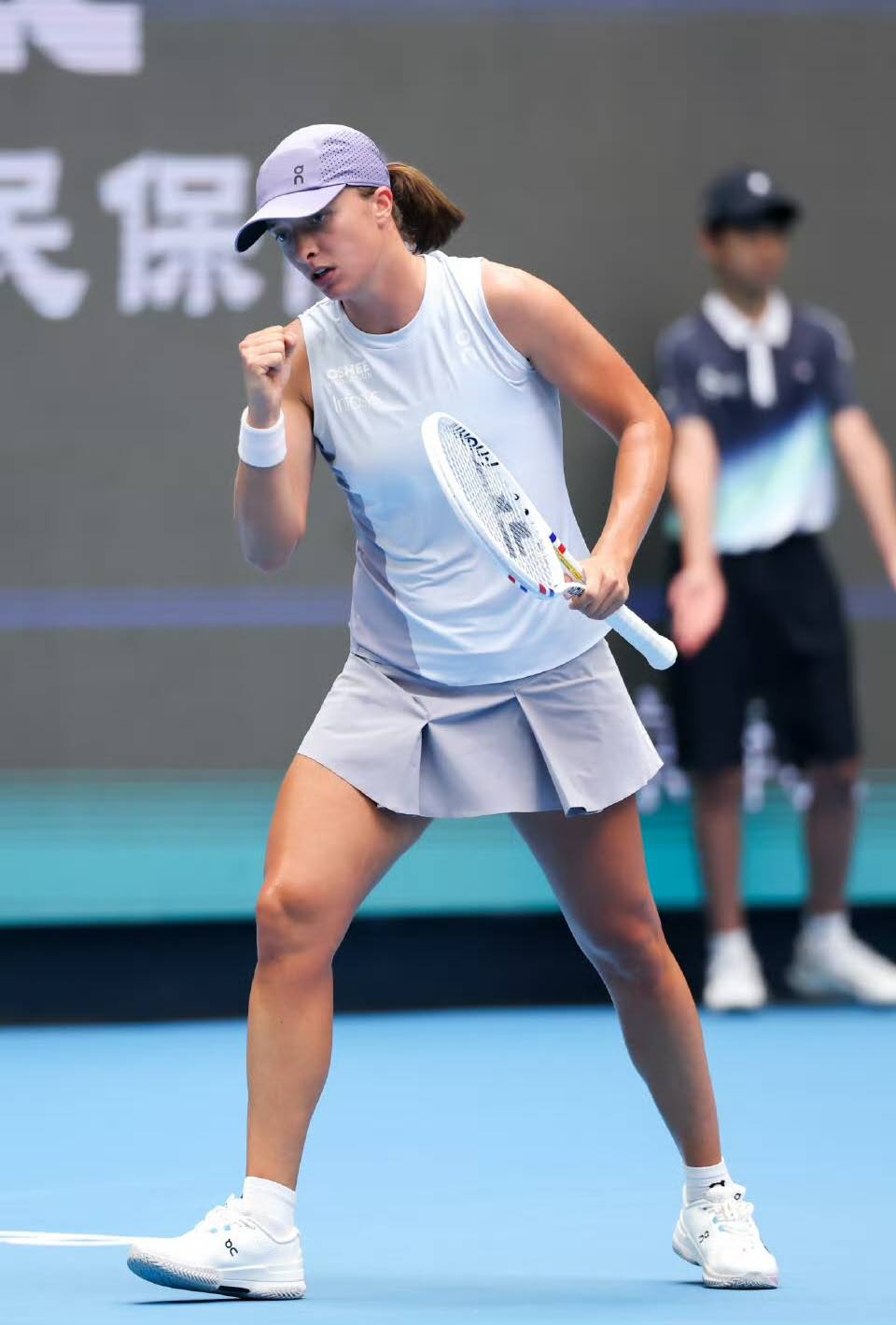
Additionally, event organizers could consider setting up designated interaction zones where players and fans can communicate at suitable times and places.
Swiatek’s experience reflects the delicate balance between the enthusiasm of Chinese fans and the needs of professional players. Her case may promote the maturation of China’s tennis viewing culture, maintaining passion while respecting boundaries, which is the best support for players.(Source: Tennis Home, Author: Lu Xiaotian)







 Links
Links
 Contact
Contact
 App
App


